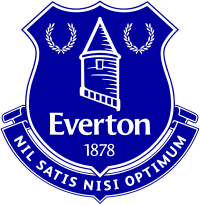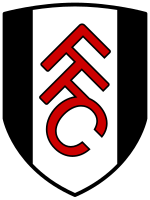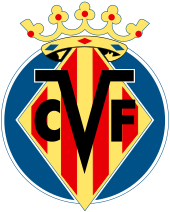Article body analysed
EPL Robbie Jay Barratt - AMA/Getty Images It was a response that Thierno Barry had not seen coming. As the striker headed off the Hill Dickinson Stadium pitch midway through the second half of a win against Fulham just over a week ago, around 50, 000 Everton supporters rose in unison to applaud his efforts. “I was surprised to receive that, ” he tells The Athletic. “Normally when that happens, you’ve had a perfect match and scored. It really touched me and my family as well, who were watching the match on TV, because it’s been a tough time for everyone since I arrived. ” Advertisement That admission over Barry’s start to life on Merseyside was offered up unprompted. Not just scoreless for his new club to date, the €32million (£28. 3m/$37. 2m at current rates) summer signing from Spain’s Villarreal is yet to register a shot on target in the Premier League in 11 appearances and 383 minutes of game time, during which he’s had nine attempts, though he did have a goal against Fulham disallowed for offside. In the 1-1 draw at Sunderland five days earlier, he missed a golden chance — from a matter of yards — to break his drought. The hope now is that the game against Fulham — an improved personal performance and that ovation from the fans — can be an early turning point; the catalyst for an upturn in Barry’s fortunes. In a way, that match felt like a microcosm of Barry’s season so far and the challenges he has faced. He spent around 20 minutes of it playing with a dislocated shoulder after an incident near the touchline in the first half before Everton’s medical team intervened and manipulated the joint back into place. Those inside the stadium saw a young player, he turned 23 last month, straining every sinew to show them what he could do. The response was to rally around him. “It (the ovation) was probably because the fans are starting to see what I’m about and get to know me more as a player, ” Barry says. “And I think possibly also due to the fact that Fulham put loads of balls out of play because of my pressing. I was racing about on my own and pressing them high, and I think they appreciated that effort. “They’re really pushing me to get on the right track, and I feel like I am now. After the miss against Sunderland, I felt under a bit more pressure. But I think they are now beginning to appreciate my efforts. ” Barry is receiving similar support from his team-mates, and name-checks club captain Seamus Coleman and Idrissa Gueye, another hugely experienced figure in the squad, as two major influences so far. The latter made a point of heading over to the young striker and offering some words of encouragement as he was substituted on 79 minutes against Fulham. Advertisement “Lots of players have been supportive, ” Barry says. “Seamus has been great. He’ll send me a message before and after every match — against Crystal Palace, for example, where I found things pretty hard. Idrissa helps me every day because I have been finding things hard. It’s very different to football in Spain, and there have been times where I’ve felt a bit down. They have been keeping me going and really helping me. “I didn’t feel great going off (in the Fulham match) because I’d played well and wanted to finish with a goal. But then I heard the applause from the fans. Idrissa came over and said, ‘You’ve done well. The goals will come in the next match. Not everyone gets a reception like that’. ” Barry has been here before. Not at Villarreal, he scored in just his second game for them, but especially at Switzerland’s Basel, where he needed over six months to find his feet. His career to date has been itinerant to say the least. It was only three years ago that he was playing for Sochaux’s B team in the fifth tier of French football. Since then, he has spent a season apiece at Beveren in Belgium, Basel and Villarreal. Even at such a young age, Barry is used to acclimatising to new environments and succeeding. On each previous occasion, he impressed sufficiently to make the next step up. But the Premier League is a different beast entirely. “At nearly every club, the adaptation has happened pretty quickly because the style of football wasn’t dramatically different, ” Barry says. “Spanish football is so planned out, neat and tidy, and here it can be a bit crazy. It’s a lot more intense and high-tempo. Centre-backs can step out and run forward. ” That experience at Basel, where he failed to score in his first 18 league appearances before going on a run of nine goals in 17 matches, feels particularly pertinent right now. Advertisement “Basel had paid a lot of money for me for a Swiss club, ” he says. “It took about seven months to adapt, and it got to the point where I wasn’t that popular with the fans and got a bit depressed. I’m the sort of person who likes to have a connection with fans and I scored in my second match at Villarreal, so things were smoother there. “Maybe I wasn’t as professional off the field (at Basel) as I am now. I arrived late to football and had never been in an academy. So I was always playing catch-up as I wasn’t used to that regimented environment. ” Barry points to two key turning points in his career, both of which came during his time in Switzerland. The first was when he sought out advice from people “a bit higher up in the game”, who suggested he should devote more of his own time to getting ready to play. “At Basel, I started to surround myself with a personal team of experts who would help me. I had my own physio and fitness coach, and did that off my own back. Even when I went on holiday to places like New York or Miami, I’d find a local fitness coach. ” The second came on a trip to the East African archipelago of Zanzibar during the Swiss season’s winter break. “I mentioned I was getting quite down at Basel. During the winter break, I was feeling pretty low and went to Zanzibar, ” he recalls. “The key moment was when I saw the kids there who had nothing. It was a wake-up call. We gave them a ball and just seeing the joy on their faces, it almost renewed my own joy for the game. We came back and had a friendly against Bayern Munich. I missed a chance, but I turned it around as a positive because I was doing well against a top side. “The thing I took from it all is that you can never say football is unfair, because you get the rewards from the hard work you put in. That’s been my mindset: that when things aren’t going well, you work even harder. ” To truly understand Barry, you need to know where he has come from and the challenges he has overcome to reach this point. Advertisement Growing up in the French city of Lyon as an aspiring footballer, his father Amadou was a particular reference point. “We’ve gone through a lot, myself and my dad, ” he says. “The first trial I ever had was at Clermont, around an hour from Lyon, when I was 16 or 17. We were struggling a bit financially and didn’t have the money for a hotel. So we got to the bus station at 11 at night and just stayed there, sleeping rough. “My dad had tried to book a hotel online and got in touch with the coach at Clermont, who was a nice guy. He managed to get us a hotel but we didn’t actually get there until 3am or 4am, and I had to get up at 7am. It wasn’t ideal preparation! “I was invited back to a second trial and was playing at centre-back. Imagine! They told me I did OK and was at the same standard as the others but not better, so they didn’t take me. ” A year later, he got offered a trial at Sochaux. But then Covid-19 shut the world down, Sochaux could not recruit any new players and Barry was at a career crossroads. “I didn’t know what I was going to do, ” he admits. “Amateur clubs weren’t allowed to train (at that point in the pandemic). The only thing I could do with my life was play football. “My dad took me out and we’d go to a local stadium to play and keep sane. ” Barry still surrounds himself with the same tight circle of experts from his days at Basel. He has two fitness coaches, two physios, a chef, a nutritionist and a psychologist with him in England. Last season at Villarreal, he also worked with a video analyst. Recent footage, posted on social media, showed him training in his back garden in a series of retro Everton shirts. Shortly after signing, he had taken a trip to the club shop. He “really liked” what he saw, so he “picked up three”. ? Thierno Barry’s latest Instagram story post ? Retro kit again? pic. twitter. com/r FVi TEk1S3 — ? ?? ? ?? ?? ? ? ?? ?? (@Everton News Feed) October 31, 2025 It has taken Barry a while to get used to his new environment and lean on the guidance of key figures at Everton. Advertisement “At the start, I tended to keep myself to myself — I was not really relying on the support from within the club, ” he says. “But then I started to get close to people like (coaches) Leighton (Baines), Billy (Mc Kinlay) and Alan (Irvine). I practise finishing with Billy and Leighton after almost every training. I also spend an hour in the gym to get ready for the challenges of the Premier League. ” Barry also does video analysis, both with the Everton backroom staff and in his own time. He was “never someone who watched too much football, despite always loving playing the game”, but now he watches “hour after hour” to see how other new strikers in the league are acclimatising in England. Liverpool’s Hugo Ekitike and Nick Woltemade at Newcastle have been two reference points. “We arrived at the same time and I like to see how they are adapting, the runs they are making, ” he says. “I’ve played with some great forwards. Dieumerci Mbokani at Beveren, Albian Ajeti at Basel and Gerard Moreno and Ayoze Perez at Villarreal. I was the youngest of the three at Villarreal, but I played the most minutes. “People say I’m in competition now with (fellow Everton striker) Beto, but I don’t see it like that. I’m in competition with myself, and if I prevail personally then I always have confidence I could do the job. That’s why I got a tattoo during my time at Basel: ‘Me against Me. ’ “Whenever I have a difficult moment now, I look at that. ” It is rare that Barry is afforded an opportunity to come up for air. To pause and think about his journey. The carousel that is his life and the succession of regular transfers rarely stop. “You can say I’ve not had the career of the average player, ” he says with a smile. “Everything has happened really quickly and I have learnt from that adversity. It does inspire me. I’ve not had time to take stock because of how quickly it’s all happened: 14 goals with Basel (across two seasons), signing for Villarreal, 11 goals in La Liga and a call for the France Under-21 team. ” Advertisement This past summer, while he was away helping France reach the semi-finals of the Under-21 European Championship in Slovakia, Barry became a father. He did not see his baby daughter properly for a month due to his playing commitments, but her birth is another key motivating factor. “If you are struggling on the field, you go back and see your daughter smiling and you have to think of something different to what’s happened in the game or training session, ” he says. “You also know you’re not just battling for yourself, but for her as well. “I’ve had times where I’ve had little. So now what really motivates me is that I want her to have everything in the future, all those things I didn’t have when I was a kid. “I want to do as well as I can at Everton. But even if my career ended tomorrow, I have achieved a lot, given where I’ve come from. ” Spot the pattern. Connect the terms Find the hidden link between sports terms Play today's puzzle Patrick Boyland has been The Athletic's Everton correspondent since 2019. Prior to joining the company, he worked for ESPN, Mail Online and press agency Sportsbeat, where he covered numerous major sporting events.
Boyland's views on Everton have been sought out by local and national media, while he is also a regular on a number of podcasts focusing on the club.
Follow him on Twitter: @Paddy_Boyland


